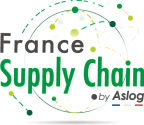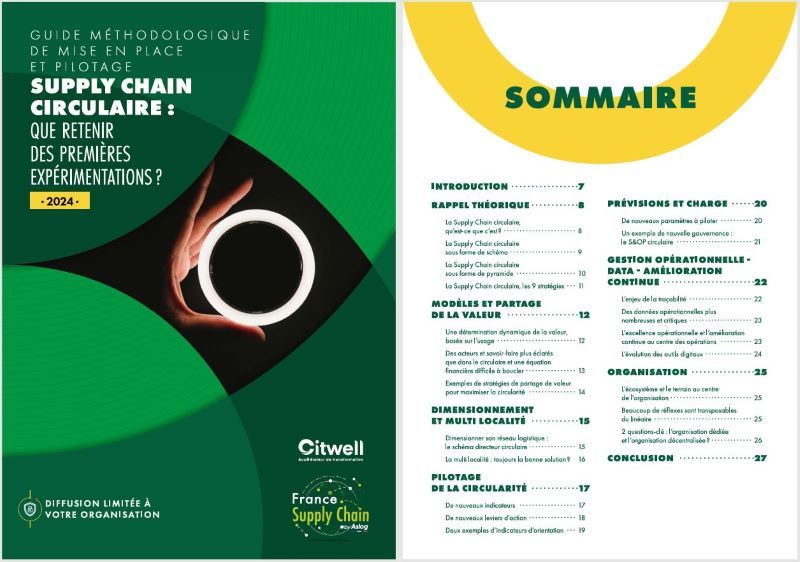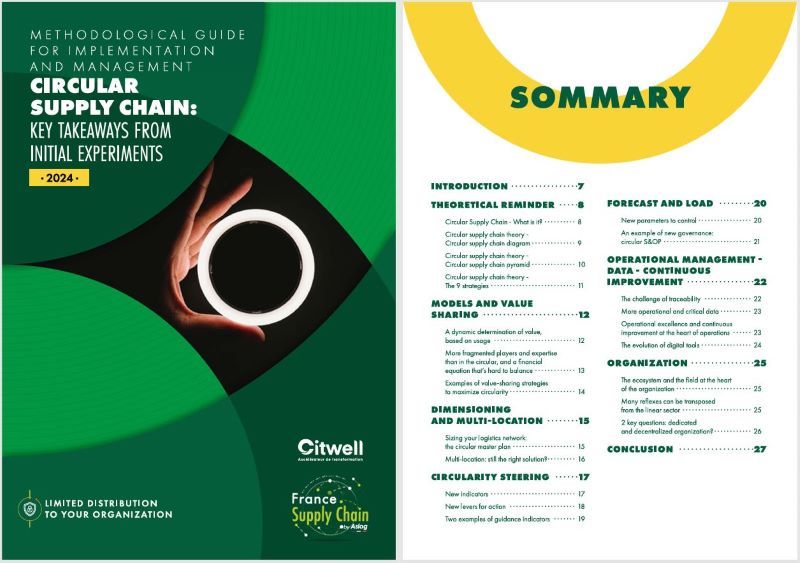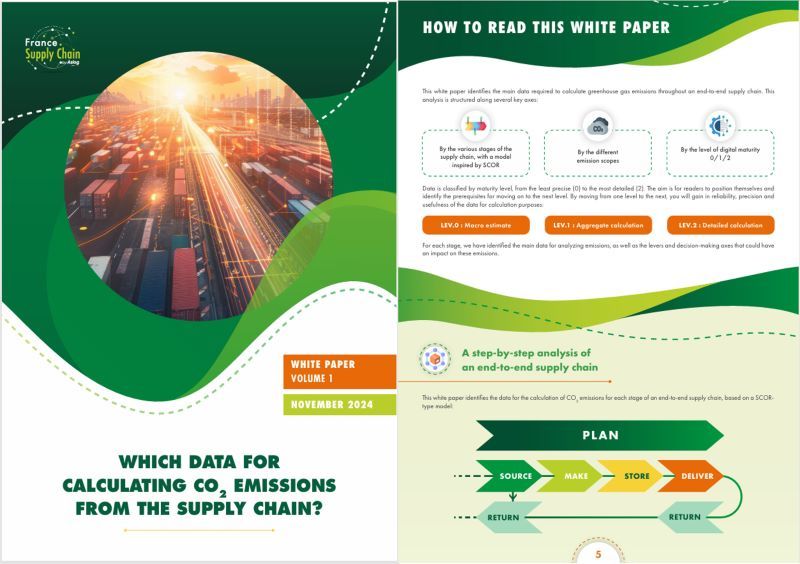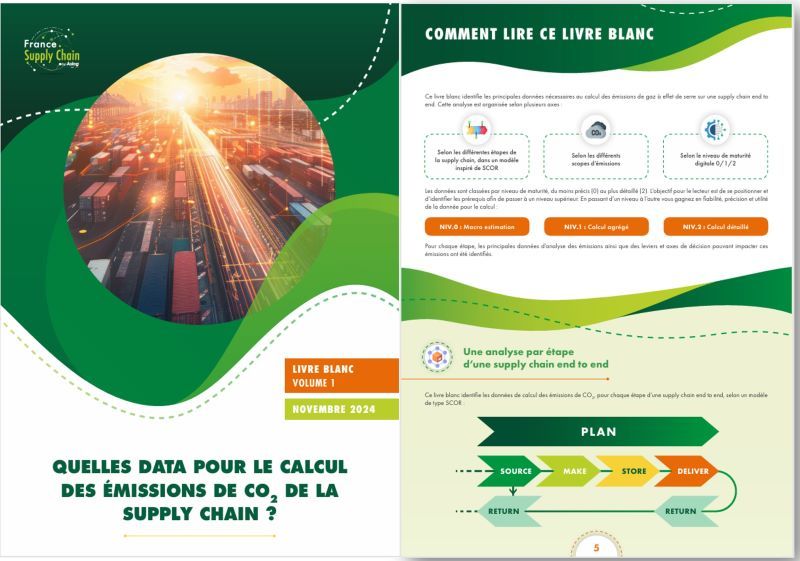Filtre : SC Durable
Collaboration et Orchestration au cœur de la réussite des JOP2024
Écrit par TRACIE@FRANCESUPPLYCHAIN.ORG le . Publié dans Non classé.
Écosystème collaboratif : l’histoire de la Shipper Coalition
Écrit par TRACIE@FRANCESUPPLYCHAIN.ORG le . Publié dans Non classé.
Les acteurs français du transport de marchandises à la voile.
Écrit par TRACIE@FRANCESUPPLYCHAIN.ORG le . Publié dans Non classé.
L’histoire de la reconstruction de Notre Dame par la Seine
Écrit par TRACIE@FRANCESUPPLYCHAIN.ORG le . Publié dans Non classé.
Management de l’Énergie : de nouvelles opportunités
Écrit par Elorri THICOIPE le . Publié dans Non classé.
Supply Chain circulaire : que retenir des premières expérimentations ?
Écrit par webm@ster le . Publié dans Prod/article phare Accueil, Prod/article phare Lab SC4Good.
Guide méthodologique de mise en place et pilotage
Download the english version ici
Après une année de travail collaboratif, notre guide d’accompagnement a pour objectif d’aider chargeurs et logisticiens à mettre en place et piloter des Supply Chains circulaires.
Ce guide méthodologique prend appui sur les 6 ateliers menés par Citwell – cabinet de conseil en transformation des opérations et Supply Chain – avec les membres de France Supply Chain. Les résultats sont agrégés d’après les piliers suivants :
- Modèle et partage de la valeur
- Dimensionnement multi localité
- Prévisions et charges
- Pilotage de la circularité
- Gestion opérationnelle, amélioration continue & data
- Organisation
Afin d’assurer la richesse et la force des ateliers, les entreprises témoins ont été sélectionnées de manière à garantir une diversité de taille, d’organisation et de secteur d’activité.
Cette publication est le résultat de ce travail collectif, écrit à plusieurs mains, et n’est que le début de l’épopée.
Un immense merci à Epalia, Michelin, Orange, Lizee, Rev Mobilities, LRPI, Valused.
Ainsi qu’aux contributeurs Décathlon, Groupement Hospitalier de Territoire Grand Paris Nord Est, Manutan, Legrand, L’Oréal, OEMServices, Renault, Saint-Gobain, Soroa.
*Source : enquête GAIA 2023
Circular Supply Chain: Key Takeaways from Initial Experiments
Écrit par Elorri THICOIPE le . Publié dans Non classé.
Methodological Guide for Implementation and Management
Télécharger la version française ici
After a year of collaborative work, our guidance document is designed to help shippers and logistics professionals implement and manage circular supply chains.
“67% of companies plan to increase their investments in circularity over the next three years…
… and members of France Supply Chain are no exception!”
Anaïs Leblanc, Executive Partner at Citwell and project leader
This methodological guide draws on six workshops conducted by Citwell —a consulting firm specializing in operations and supply chain transformation—with members of France Supply Chain. The findings are structured around the following pillars:
- Value model and sharing
- Multi-locality sizing
- Forecasting and workloads
- Circularity management
- Operational management, continuous improvement & data
- Organization
To ensure the richness and robustness of the workshops, participating companies were carefully selected to represent a diversity of sizes, structures, and sectors.
This publication is the result of this collective effort, written collaboratively, and is just the beginning of the journey.
A huge thank you to Epalia, Michelin, Orange, Lizee, Rev Mobilities, LRPI, and Valused.
And to the contributors from Decathlon, Groupement Hospitalier de Territoire Grand Paris Nord Est, Manutan, Legrand, L’Oréal, OEMServices, Renault, Saint-Gobain, and Soroa.
Source: GAIA 2023 survey
WHICH DATA FOR CALCULATING CO2 EMISSIONS IN THE SUPPLY CHAIN?
Écrit par Elorri THICOIPE le . Publié dans Non classé.
Télécharger la version française à ce lien
White Paper Volume I
This 1st white paper assists in identifying the relevant data and level of precision needed to calculate CO₂ equivalent emissions across the entire Supply Chain. It also highlights initial levers to activate for decarbonization.
This analysis is organized along several key axes:
- the various stages of the Supply Chain;
- the different emission scopes;
- the level of digital maturity.
This publication is the result of the work carried out by the Digital Lab, enriched by contributions from its members, both operational and expert in the Supply Chain, as well as by carbon footprint assessment initiatives. A second volume will be published in 2025.
After presenting the group’s working methodology, explore the description of data categories and an analysis of the data required to calculate emissions across an end-to-end Supply Chain.
Download the tool using the following form
QUELLES DATA POUR LE CALCUL DES ÉMISSIONS DE CO2 DE LA SUPPLY CHAIN ?
Écrit par Elorri THICOIPE le . Publié dans Prod/article phare Accueil, Prod/article phare Lab Digital.
Download the english version ici
Livre BLANC volume I
Ce 1er livre blanc aide à identifier les données et le niveau de précision pertinents afin de calculer ses émissions en équivalent CO² sur l’ensemble de la Supply Chain. Il recense également les premiers leviers à actionner pour décarboner.
Cette analyse est organisée selon plusieurs axes :
- les différentes étapes de la Supply Chain ;
- les différents scopes d’émissions ;
- le niveau de maturité digitale.
Cette publication est le fruit des travaux du Lab Digital, elle a été nourrie par les apports de ses membres, aussi bien opérationnels qu’experts de la Supply Chain ainsi que des démarches de bilan carbone.
Après une présentation de la méthodologie de travail du groupe, découvrez la description des catégories de données et une analyse des données nécessaires au calcul des émissions sur une Supply Chain end to end.
